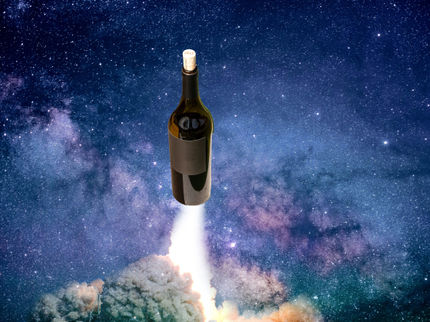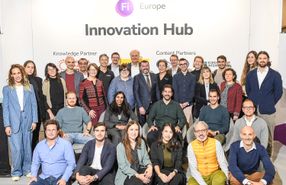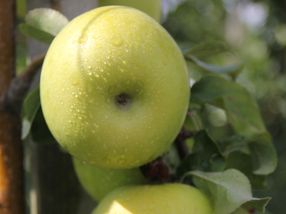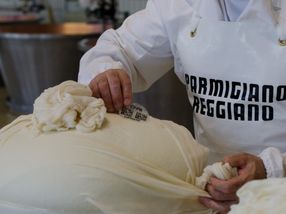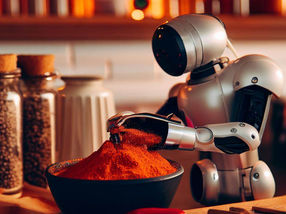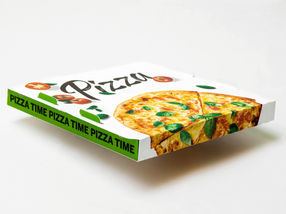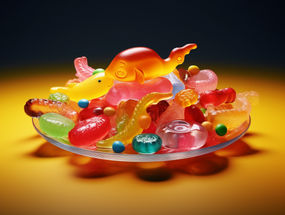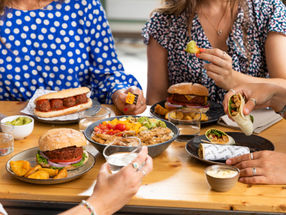Sustainable enjoyment: The first wine in paper bottles
Advertisement
They have already won an award at the PAC Global Awards for Innovative Packaging in New York in 2023, and now the first paper bottles of Italian wine are filling the shelves in Germany. Wine in paper bottles? That's right. The Heinz Hein company from Wiesbaden imports the "Cantina Goccia" grape juice from Italy in a new type of sustainable packaging. "sustainability is very important to the winemaker and to us. Therefore, it was only logical to look for an alternative that does not leave such a large ecological footprint as glass production, which alone consumes a lot of water," explains Silvia Miebach, owner of Heinz Hein. The facts speak for themselves: at 82 grams, the paper bottle is five times lighter than a glass bottle, which in bulk also reduces fuel consumption during transport. It contains 77 percent less plastic than conventional plastic bottles and adorns a floral-patterned outer shell made from 94 percent recycled cardboard. Inner PET keeps the packaging from softening. "Overall, the carbon footprint is six times lower than that of glass bottles, according to manufacturer Frugalpac," adds Silvia Miebach.
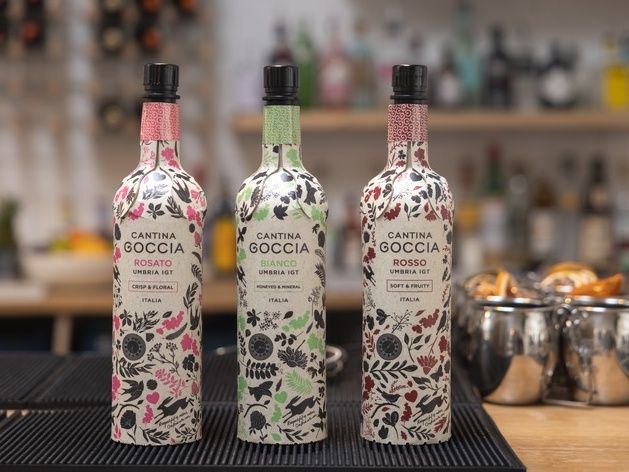
Paper bottles Cantina Goccia
Heinz Hein Weinhandel e.K.
Biggest innovation in the wine industry
The recycling principle of the paper bottle is already familiar from dairy products such as yogurt: After consumption, the outer wrapper is peeled off and goes into the waste paper, the inner packaging into the yellow or recycling garbage can. Cantina Goccia" is available as rosé, white or red wine. Silvia Miebach is pleased to be the first importer of paper-bottled wine: "This is the biggest innovation in the wine industry for a long time. Rising prices and supply difficulties of glass are now a problem. So we're even happier to have found a much better, environmentally friendly solution here." In wine lies truth, in its packaging lies sustainability.
Note: This article has been translated using a computer system without human intervention. LUMITOS offers these automatic translations to present a wider range of current news. Since this article has been translated with automatic translation, it is possible that it contains errors in vocabulary, syntax or grammar. The original article in German can be found here.
Most read news
Organizations
Other news from the department research and development

Get the food & beverage industry in your inbox
By submitting this form you agree that LUMITOS AG will send you the newsletter(s) selected above by email. Your data will not be passed on to third parties. Your data will be stored and processed in accordance with our data protection regulations. LUMITOS may contact you by email for the purpose of advertising or market and opinion surveys. You can revoke your consent at any time without giving reasons to LUMITOS AG, Ernst-Augustin-Str. 2, 12489 Berlin, Germany or by e-mail at revoke@lumitos.com with effect for the future. In addition, each email contains a link to unsubscribe from the corresponding newsletter.



